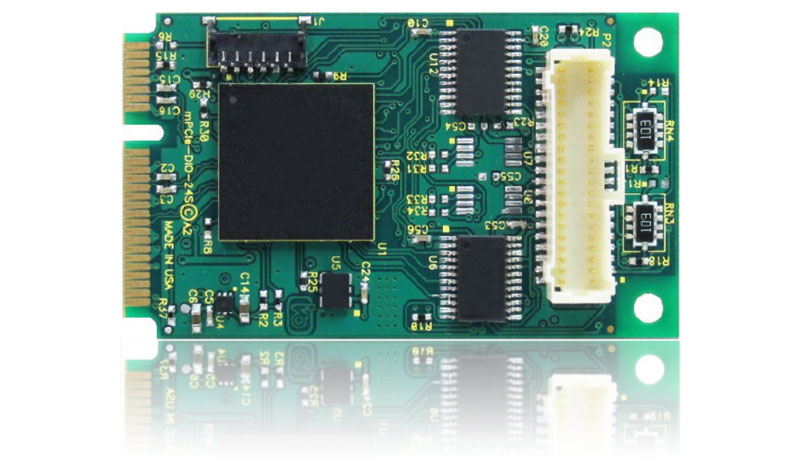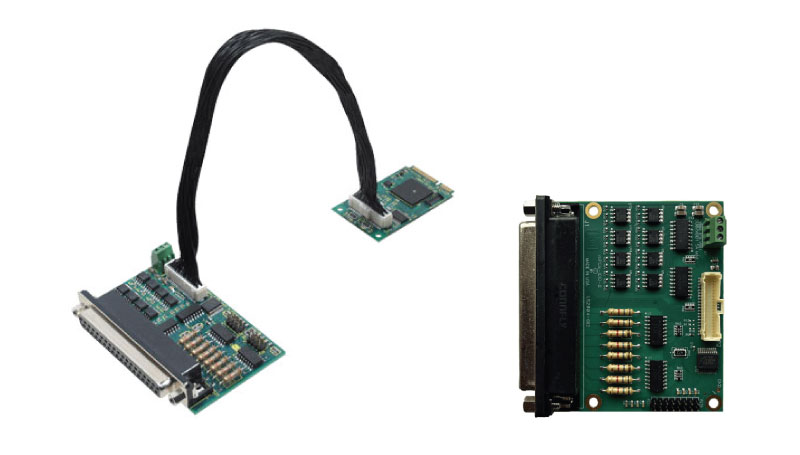
● PCI Express Mini Card (mPCIe) Type F1, with latching I/O connectors
● 8 or 4 optically-isolated non-polarized inputs up to 31VDC/AC
● 8 or 4 fully protected high-side FET outputs switch from 5 to 34VDC at up to 2A
● Change-of-State (COS) detection IRQ generation
● 9” cable (228MM), standard
● Panel-mountable isolation module with 37-pin male D-Sub connector
● 8 LVTTL I/O lines programmable as inputs or outputs in groups of 4 (Pulled up)
● RoHS Standard
● Ask about Digital Integration Features!
- Outputs with pulse/train / PWM / frequency / and Quadrature generation, Inputs with digital filtering and flexible measurement of pulse duration, frequency, and event counting, IRQ generation and more.
● FACTORY OPTIONS:
- Extended Temperature Operation (-40°C to +85°C)
- Pull down LVTTL lines.
- TTL: CMOS signaling with user supplied VCCIO (+5V)
- Support for Wind River VxWorks (call for ordering information)
● Process Monitoring
● Manufacturing/Production Test
● Machine Control
● Monitoring and Control
● Security Systems, Energy Management
● Industrial Automation
● Factory Automation
● Laboratory Automation
● Embedded OEM
Available accessories include a variety of screw terminal boards for quick and easy connectivity as well as 2mm and 2.5mm mounting hardware. Alternately, custom hardware cables and/or interfaces can be produced to fit your specific application requirement.

The card is supported for use in most operating systems and includes a free DOS, Linux , and Windows 2000/XP/2003/Vista/7/8/10 compatible software package. This package contains sample programs and source code in Visual Basic, Delphi, and Visual C++ for Windows. Also provided is a graphical setup program in Windows. Linux support includes installation files and basic samples for programming from user level via an open source kernel driver. Third party support includes a Windows standard DLL interface usable from the most popular application programs, and includes LabVIEW 8.5+ VIs. Embedded OS support includes Windows XPe, WES7, WES8, vxWorks, etc. Full register-level documentation of all features ensures easy compatibility in any application environment.